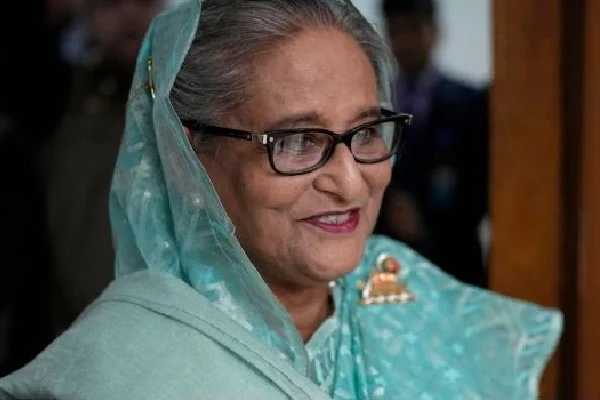China has formally invited Bangladesh Prime Minister Sheikh Hasina for an official visit, expressing eagerness to collaborate with the new government in Dhaka to enhance bilateral cooperation across various sectors.
“We (Dhaka) will find a suitable time for the visit,” stated Foreign Minister Hassan Mahmud during a press briefing after his meeting with Chinese Ambassador to Bangladesh Yao Wen on Sunday.
Ambassador Yao Wen’s meeting with Minister Mahmud occurred following the successful re-election of the Awami League, led by Prime Minister Sheikh Hasina, for a consecutive fourth term in the elections held on January 7. The Bangladesh Nationalist Party (BNP), a major opposition party, boycotted the elections.
Foreign Minister Mahmud mentioned that discussions are in progress to coordinate the visit at a mutually convenient time for Prime Minister Hasina’s official tour to Beijing.
Prime Minister Hasina previously visited China from July 1-6, 2019, where she also participated in the 13th Summer Davos Forum in Dalian and had a meeting with Chinese President Xi Jinping.
In a statement, the foreign ministry emphasized that China reaffirmed its commitment to strengthening bilateral relations during the tenure of Bangladesh’s new government.
After the January 7 polls, Chinese President Xi congratulated Prime Minister Hasina and expressed confidence in fostering stronger ties between the two nations.
Sources from the Bangladesh foreign ministry disclosed that China had initially proposed a visit by Prime Minister Hasina in September of the previous year. However, due to the elections and other commitments, the visit was postponed.
China’s invitation comes shortly after Obaidul Quader, the general secretary of the ruling party, and Road Transport Minister, acknowledged India’s support during the elections. Quader stated that there is no reason for strained relations with India, and he believes that the wall of confusion and mistrust has been broken by the leaders of both countries.
A senior foreign ministry official, speaking on the condition of anonymity, emphasized that Bangladesh aims to maintain a balanced relationship with both India and China. The strategic positioning of Bangladesh between these two neighboring nations requires careful diplomacy to ensure stability and development.
Analysts credit Prime Minister Hasina for skillfully navigating the competing interests of India and China. Bangladesh finds itself situated between these two powerful nations, and Hasina’s diplomatic efforts have garnered support from both India and China, as well as other significant global players like Russia.
India characterized the Bangladesh election as an “internal matter,” a sentiment echoed by Beijing. While Western powers, including the United States, have called for credible polls, Hasina’s adept handling of diplomatic relations has contributed to maintaining stability in Bangladesh.













